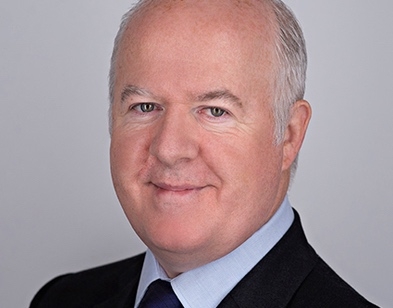In just over four weeks Chancellor Rachel Reeves will set out her Budget plans and how she will tackle rising public spending and raise more revenue.
We know pensions are in her sights but is there a bigger story here?
The changing demographics of the UK, and in particular the rapidly rising older population, are perhaps the challenge of a generation and at the very heart of the difficulties she and future Chancellors face.
We know the number of over-60s is rising but little has been understood about the 'very old' population, as it's sometimes called.
As we’ve reported on Financial Planning Today this week, the population of very old people (aged 90 and over) is rising rapidly in the UK and, according to the latest ONS estimates, has doubled since 2004 to 625,000.
That's equivalent to a city the size of Glasgow.
In many ways, this is a wonderful thing and should be celebrated. It suggests that better healthcare, improved living standards and long term medical and care support are helping many more people live longer. While it's true that many pensioners have struggled with rising living costs, the fact is that the UK looks after most older people well.
What’s more is that this increase in the 'very old' is continuing. The UK population aged 90 and over is up by 2.2% since 2023.
The number of centenarians, as an example, has doubled since 2004 to 16,600, quite an amazing statistic. If this carries on the King will have a lot more cards to write.
The Baby Boomers, in particular, are living longer on average, which is very welcome, but there is a price to pay and a debate to be had.
The statistics alone point to many more depending on the State Pension in future for much longer than previous generations. Someone retiring on the State Pension at 67 could well live for another 20, 30 or even 40 years.
There are simply hundreds of thousands more people claiming the State Pension than there were at the start of the century and if current increases continue there will be many more.
The question is how to pay for all this? It is simply madness that the State Pension is funded by taxpayers on an annual basis through income tax and National Insurance (another name for income tax in reality). There is no 'State Pension pot' and this needs to change.
We need to move to a funded scheme where people who pay in receive the State Pension in later life by setting aside money now and keeping that money segregated so it doesn't disappear into general government spending. This way those who put money in can see where their money is going instead of the opaque and baffling mess of a scheme we have now.
Without change the State Pension will become too expensive to afford. The Triple Lock, unless it is dropped, will accelerate the cost in the coming years to a point where it may well undermine every Budget. A review of the impact of an older population and the State Pension is long overdue.
As I’ve argued before, simply pushing up the State Pension age is not an answer because it’s unfair to the many millions who live in poorer areas and will have a limited lifespan, well below the national average. Smarter solutions need to be found.
It’s incumbent on the Chancellor and other ministers to admit that the State Pension is not affordable in the longer term and radical reform is needed to bring costs under control and to develop a sustainable and equitable system.
• Read our latest issue of Financial Planning Today magazine here: https://bit.ly/3EX7Asd. Subscribe to receive every issue and you can upgrade to receive the glossy print edition.
Kevin O’Donnell is editor of Financial Planning Today and a journalist with 40 years of experience. This topical comment on the Financial Planning news appears most weeks, usually on Fridays but occasionally other days. Email:
> Follow me on Twitter / X at @FPT_Kevin for breaking news and key updates

